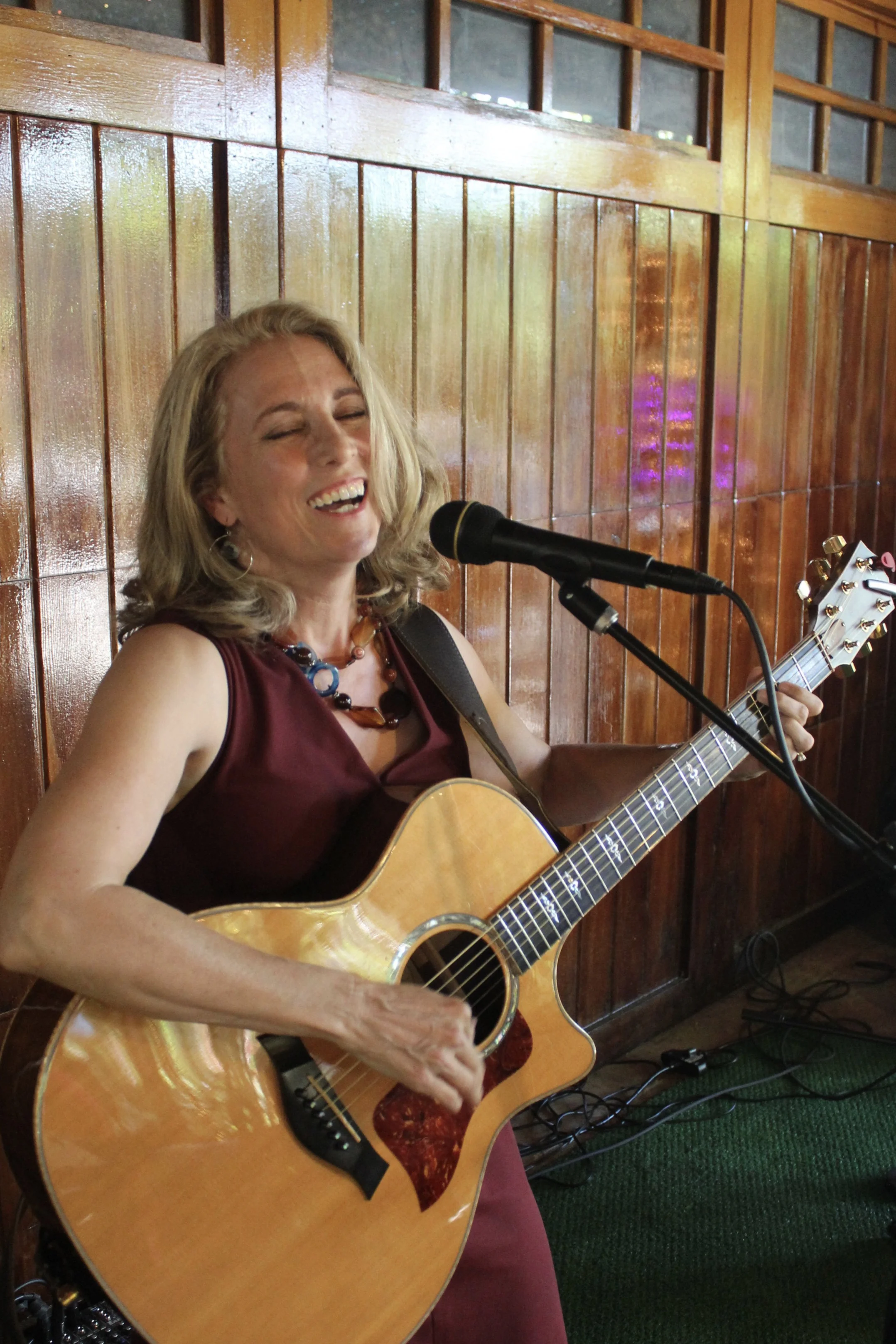I want to live in a song
so you can play me all night long
Pull my guitar right on out of her case
Strum my strings from the treble to the bass
I want to live in a song
I want to live in a vinyl 45
so you can make me spin and jive
Lay my record on the old turntable
Slip in my grooves if you’re willing and able
I want to live in a vinyl 45
I want to live in a drum
so you can make my skin thrum
Brush my high hat and stroke my cymbal
Play the whole kit if you’re feeling nimble
I want to live in a drum
Play me all night long—
I want to live in a song
Music provides a common language for people—no matter one’s ethnicity, age, race, gender, religion, or political views. No other art form can transport us to a shared emotional state so quickly and completely—mind, body and soul. And for musicians, the act of playing together creates a synchronicity that is rarely reached in any other human endeavor. Name the key, count off the beat, and we are off on a journey together. The math and geometry of music sketch a road map so that no one gets lost (or at least not for long because you can always return home to the tonic note—the first note of the scale—and the “1”—the downbeat, the first beat of a measure).
It took two years before this shy, people-pleasing introvert would even sing this song in public. Singing such a forward, suggestive song pushed me pretty far out of my comfort zone. But creative endeavors require vulnerability, so in the end I recorded this song not once but three times, made it the title song for my first full album, and rarely play a set without including this song.
Knowing my music theatre past and my love of 20th century lyricists give the song some context. Lorenz Hart, Ira Gershwin, and Cole Porter (to name a few of my favorites) used witty lyrics filled with metaphors, puns and double entendres to express forbidden feelings (Hart’s Bewitched, Bothered and Bewildered, Porter’s “You’re the Top”). Lyricists for music theatre (such as Stephen Sondheim) used clever rhymes, rhythm and word play to add layers of complexity to the drama. I also appreciate the way current hip hop and pop artists coin new phrases with multi-layered metaphors and word pattern and rhythm—conveying deep meaning in a go-down easy musical context.
Songs must be entertaining and at least partially understood upon a first listen. But I think the best songs contain clues and multiple meanings that only deepen upon repeated listening. That’s why I still love to sit down and listen to an artist’s cd with lyrics in hand. Words can be so multi-layered. My favorite word in this song was “play”. Here’s a shortened list of meanings of the word play (all of which were intended in that one 4 letter word):
Play (verb): (acting): personify, impersonate;(beguile): deceive, fool, double-cross, seduce; make a sound with an instrument; make a visit, see; frolic, cavort, whoop it up; carouse, paint the town red; compete, challenge, grapple with; act-up, misbehave; amuse oneself, trifle, not be serious, flirt with; caress, cuddle, toy with; deal with, handle, cope with; manage, operate; depict, portray; exploit, make use of; feign, pretend, imagine; mess with, handle; fidget, squirm; field, handle, retrieve; finesse, bluff; frolic, dance; cut loose, raise hell, go on a tear; dare, gamble, put trust in, wager, defy; manage, take care of, utilize; interpret, translate....
Before I started performing the song for audiences, I was afraid my intent would be misinterpreted—that women would feel uncomfortable and men would feel empowered in ways I did not intend in their behavior toward me or other women. I have found the opposite to be true. It’s women who have felt empowered. As I perform the song, women tend to respond with laughter and clapping. I think women respond so strongly because we often experience the world as objects (especially of the “male gaze”) instead of as subjects. Objectification, the continued physical and mental abuse of women, and the political battleground of women’s bodies stunt women’s ability to speak and act and keep us from being whole human beings. A song that starts with a woman speaking in the nominative (not subjective) case with an active (not passive) verb (“I want”) flips the usual power dynamic—a woman in charge of her own body (including her sexuality). It’s thrilling and fun.
The slower-paced, jazzy version with more complex chord progressions is the original version, and thus the one I chose to include as the third song (often the anchoring song on an album). I wrote it from a very melancholic, lonely, and yearning space and so this version of the song is meant to evoke feelings of unrequited longing. Sometimes the world only makes sense when I am singing a song—especially if I am singing with another musician or singing for someone who is intently listening. The sound waves wash over me like a blessing, and I can almost reach out and touch the electrical charge connecting me to someone else. Most of us, I think, feel quite disconnected from each other. The latest tragedy, act of violence, or dehumanizing word or deed is so dispiriting, I want to wrap myself up in music and hide away. Enjoying music together is a glorious respite from the disconnectedness we feel in our families, friendships, communities, and countries. That impulse—wanting to live in a song—is at the heart of the song “Play Me” and why I made it the title song for my cd.


